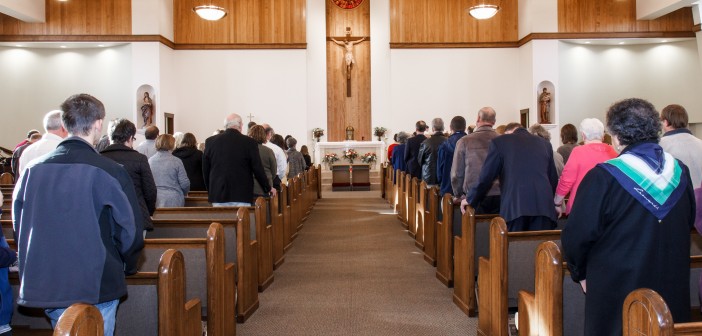Just as some churches are adding worship services, others are considering reducing the number of worship times they offer. The most common circumstance is a church that traditionally offered two Sunday morning services and is considering replacing that pattern with a single worship experience.
The question of one service is not which option I prefer personally, but rather which option will accomplish our purpose for worship most effectively.
Here is how someone recently described their situation:
For years we have had two Sunday morning services. However, increasingly on special occasions, everyone worships together in one service. The energy felt in these services is leading some to push for more frequent combined services or simply going to one service for every Sunday.
Let’s use this case to examine several leadership considerations to explore before reducing the number of services, whether occasionally, routinely or permanently.
Missional Fruitfulness
Good leaders resist the natural impulse to choose a side based on personal preferences or the impact on personal responsibilities. The leader’s task is to help people think about the worship schedule from a perspective of missional fruitfulness. If you have not already done so, you need to clarify the reason you have worship in the first place. For example, here is how one church defines the purpose of their worship services: “We have worship so that members can glorify God, give thanks, grow as disciples, and be inspired for action in a way that draws new disciples to follow Christ.”
Then the question of one service is not which option I prefer personally, but rather which option will accomplish our purpose for worship most effectively. Therefore, if the church just referenced were to decide to go from two services to one, then it would be because they can truthfully say, “We will have one worship service so that members can glorify God, give thanks, grow as disciples, and be inspired for action in a way that draws new disciples to follow Christ more fruitfully than having multiple services.” This is the only basis for changing.
Along the way, you will need to know much more about how the two services came about and the differences in constituencies for each. It may be that a single service will produce more fruit, but you need to have some reasonable basis for that conclusion before making the change. There may be reasons why one or both of the services are not well attended that have nothing to do with the time of the service or the number of services. Keep in mind that people normally prefer more options rather than fewer. Movie theaters learned that a long time ago.
When Occasionally Combining Services Makes Sense
The question of “occasional” combined services raises issues of its own. If the combined services are around “special” occasions, then there will of course be more attendance and energy. This added energy may dissipate if the occasions for joint services become less special as they become more frequent.
My greatest reservation about occasional changes in the worship schedule is that it conveys an insider mentality. Those most “in the know” can keep up with the changes, but the somewhat active and less active will not, nor will guests or occasional visitors. Showing up for worship only to discover you have missed the “special service” does not cultivate more engagement.
If such changes in your worship schedule are indeed rare, then you can make it work to your advantage. Let’s say that on Easter you planned a combined service, perhaps at a different venue to seat everyone. That could be confusing, but if you use the change as the opportunity to contact everyone in the church to remind them of the change and do external publicity, then you actually send a very different message to less active members and potential visitors. Otherwise, such changes will appear to be for “insiders” who always seem to have special knowledge.
The number of worship services and their times are not sacred. Just be sure you are making changes for the right reasons.
Related Resources:
- Moving Beyond Personal Preferences into Missional Thinking by Ed Stetzer and David Putman
- The Missing Person in Worship Planning by Lovett H. Weems, Jr.
- Be the Welcoming Church Video Tool Kit







